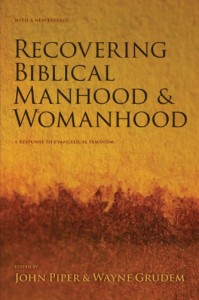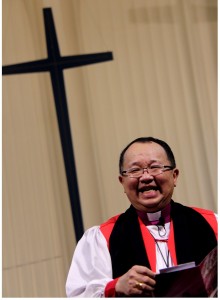 I have to confess to having never heard of Vicky Beeching until about five days ago. Vicky is a Christian popular singer who has a massive following on both side of the Atlantic among Christians of a conservative persuasion. Last week in an interview with the Independent she declared that she was gay. Why the fuss when so many other prominent names in show business have followed the same path? But this particular ‘coming-out’ could have massive significance for the evangelical world as it struggles to make sense of this particular defection from the ‘clear’ path of Scripture.
I have to confess to having never heard of Vicky Beeching until about five days ago. Vicky is a Christian popular singer who has a massive following on both side of the Atlantic among Christians of a conservative persuasion. Last week in an interview with the Independent she declared that she was gay. Why the fuss when so many other prominent names in show business have followed the same path? But this particular ‘coming-out’ could have massive significance for the evangelical world as it struggles to make sense of this particular defection from the ‘clear’ path of Scripture.
In my perusal of the web-site, Thinking Anglicans, there was a fascinating vignette recorded about a meeting at Holy Trinity Brompton from about a year ago. An invited speaker, no doubt carefully vetted for his correct views, tried to get a reaction from his audience by talking about the evil in society for its tolerance of gay marriage. Instead of the sounds of approval for his upholding the teaching of scripture, the speaker was greeted with total silence. Are we in this small incident witnessing the end of the assumption that all evangelicals are totally united in condemning gay relationships? Is this the Ceacescu moment when suddenly the hitherto obedient crowd stop cheering their leaders?
Within the evangelical world there have been precious few issues on which all their constituent members agree on. The Evangelical Alliance in the UK has tried to give the impression that evangelicals have basic common understandings even though they differ radically about almost every theological issue under the sun. It has always been a point of joking that two fundamentalists on a desert island would build at least three churches. There would be one each for the fundamentalists and a third to be the church that would be the one that did not preach the gospel and could be the object of condemnation by the other two. The Evangelical Alliance does in fact have some ‘dodgy’ groups among its members who then proudly proclaim their membership as a sign of respectability. Occasionally certain groups are expelled for gross violations but it is only fairly rare. Recently the point of breaking with the Alliance has been over the gay issue. Steve Chalke, a highly respected evangelical leader, came out in support of gay relationships. His organisation, the Oasis Trust, immediately had its membership of the EA withdrawn. This action leads one to assume that the gay question is the point of departure between ‘acceptable’ evangelicals and the rest.
One watches this fault line within the evangelical world with enormous interest. If there is a breaking of ranks among evangelicals then that will be of enormous significance for everyone else. Hitherto the evangelical world has been able to present a fairly united front in spite of their many squabbles over doctrine. The gay issue has been the one thing that has been held up as being distinctively Christian for many of them. The bed and breakfast couple who went to court to defend their right to refuse hospitality to a gay couple, declared that to do so was against their Christian beliefs. For them and for many evangelical Christians, the Christian faith stands and falls on the acceptance of the condemnation of gay activity.
To return to Vicky Beeching. Her coming-out is a significant moment for the evangelical world on both sides of the Atlantic. At the age of 35 her popularity is likely to be great among the younger evangelical set. It has already been indicated that younger people, regardless of their religious beliefs, are more tolerant to the gay question than older people. Is it not possible that the Beeching affair is the beginning of the end of evangelical unity over this issue? We watch the fall-out from this story with interest. Meanwhile there is an intriguing footnote for Anglicans in the UK. Vicky is a close personal friend of one of the daughters of Justin Welby, the Archbishop. Presumably she is known to him personally. Is this incident going indirectly to cause a further shift in Anglican attitudes? The attitudes of many evangelicals all over the world, will be affected. That is a small mark on the journey that readers of this blog look for, an acceptance of difference, a greater tolerance and inclusivity in the church as well as in society as a whole.





